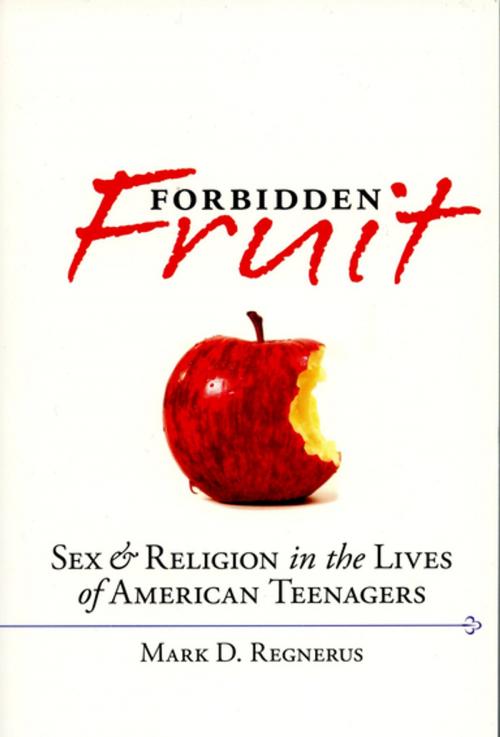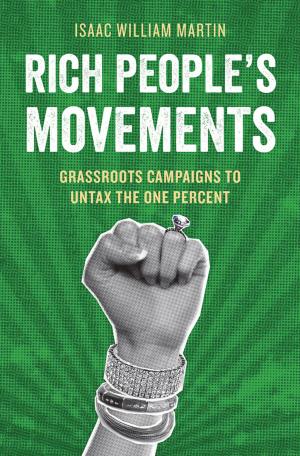Forbidden Fruit
Sex & Religion in the Lives of American Teenagers
Nonfiction, Social & Cultural Studies, Social Science, Sociology, Marriage & Family, Family & Relationships, Adolescence| Author: | Mark D. Regnerus | ISBN: | 9780199886487 |
| Publisher: | Oxford University Press | Publication: | March 1, 2007 |
| Imprint: | Oxford University Press | Language: | English |
| Author: | Mark D. Regnerus |
| ISBN: | 9780199886487 |
| Publisher: | Oxford University Press |
| Publication: | March 1, 2007 |
| Imprint: | Oxford University Press |
| Language: | English |
Americans remain deeply ambivalent about teenage sexuality. Many presume that such uneasiness is rooted in religion. But how exactly does religion contribute to the formation of teenagers' sexual values and actions? What difference, if any, does religion make in adolescents' sexual attitudes and behaviors? Are abstinence pledges effective? What does it mean to be "emotionally ready" for sex? Who expresses regrets about their sexual activity and why? Tackling these and other questions, Forbidden Fruit tells the definitive story of the sexual values and practices of American teenagers, paying particular attention to how participating in organized religion shapes sexual decision-making. Merging analyses of three national surveys with stories drawn from interviews with over 250 teenagers across America, Mark Regnerus reviews how young people learn-and what they know-about sex from their parents, schools, peers and other sources. He examines what experiences teens profess to have had, and how they make sense of these experiences in light of their own identities as religious, moral, and responsible persons. Religion can and does matter, Regnerus finds, but religious claims are often swamped by other compelling sexual scripts. Particularly interesting is the emergence of what Regnerus calls a new middle class sexual morality which has little to do with a desire for virginity but nevertheless shuns intercourse in order to avoid risks associated with pregnancy and STDs. And strikingly, evangelical teens aren't less sexually active than their non-evangelical counterparts, they just tend to feel guiltier about it. In fact, Regnerus finds that few religious teens have internalized or are even able to articulate the sexual ethic taught by their denominations. The only-and largely ineffective-sexual message most religious teens are getting is, "Don't do it until you're married." Ultimately, Regnerus concludes, religion may influence adolescent sexual behavior, but it rarely motivates sexual decision making.
Americans remain deeply ambivalent about teenage sexuality. Many presume that such uneasiness is rooted in religion. But how exactly does religion contribute to the formation of teenagers' sexual values and actions? What difference, if any, does religion make in adolescents' sexual attitudes and behaviors? Are abstinence pledges effective? What does it mean to be "emotionally ready" for sex? Who expresses regrets about their sexual activity and why? Tackling these and other questions, Forbidden Fruit tells the definitive story of the sexual values and practices of American teenagers, paying particular attention to how participating in organized religion shapes sexual decision-making. Merging analyses of three national surveys with stories drawn from interviews with over 250 teenagers across America, Mark Regnerus reviews how young people learn-and what they know-about sex from their parents, schools, peers and other sources. He examines what experiences teens profess to have had, and how they make sense of these experiences in light of their own identities as religious, moral, and responsible persons. Religion can and does matter, Regnerus finds, but religious claims are often swamped by other compelling sexual scripts. Particularly interesting is the emergence of what Regnerus calls a new middle class sexual morality which has little to do with a desire for virginity but nevertheless shuns intercourse in order to avoid risks associated with pregnancy and STDs. And strikingly, evangelical teens aren't less sexually active than their non-evangelical counterparts, they just tend to feel guiltier about it. In fact, Regnerus finds that few religious teens have internalized or are even able to articulate the sexual ethic taught by their denominations. The only-and largely ineffective-sexual message most religious teens are getting is, "Don't do it until you're married." Ultimately, Regnerus concludes, religion may influence adolescent sexual behavior, but it rarely motivates sexual decision making.















